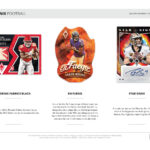Reading Hobby: More than a pastime, reading offers profound psychological, social, and cognitive benefits. From stress reduction and enhanced memory to fostering empathy and expanding knowledge, the rewards are multifaceted. This exploration delves into the art of cultivating a fulfilling reading life, examining strategies for finding engaging material, developing effective habits, and appreciating the diverse mediums available.
We’ll navigate the landscape of genres, explore the advantages of various reading formats—from physical books to audiobooks and e-readers—and uncover techniques to improve comprehension and reading speed. Ultimately, this guide aims to empower readers to unlock the transformative power of books and build a lifelong love of reading.
Reading Across Different Media

The proliferation of digital technologies has fundamentally reshaped the reading experience, offering a diverse range of media beyond the traditional printed book. This evolution presents both opportunities and challenges, impacting not only how we consume textual information but also our comprehension and overall engagement with literature and other forms of written content. A comparative analysis of these different media reveals distinct advantages and disadvantages, influencing reader preferences and shaping the future of the reading landscape.
Physical Books Versus Ebooks
The tactile experience of holding a physical book, turning its pages, and marking passages with a dog-eared corner remains a cherished aspect of reading for many. The absence of screen glare and the inherent portability of a physical book, especially in locations with limited internet access, are significant advantages. However, ebooks offer unparalleled convenience in terms of storage, searchability, and portability.
The ability to adjust font size and lighting, along with the instant access to a vast digital library, makes ebooks attractive to a growing segment of readers. Ultimately, the choice often comes down to personal preference and the specific reading context.
Audiobooks and Their Impact on Comprehension
Audiobooks provide accessibility to readers with visual impairments or those who prefer to consume content while multitasking, such as during commutes or exercise. However, the passive nature of listening can sometimes hinder comprehension compared to active reading. Studies suggest that the lack of visual engagement can lead to reduced retention of detail and a less thorough understanding of complex concepts.
Nonetheless, audiobooks offer a valuable alternative for certain readers and can enhance engagement with longer works of fiction or non-fiction, particularly for those with busy schedules. Furthermore, the use of different voices and sound effects can enhance the immersive experience.
Technologies Enhancing the Reading Experience, Reading Hobby
E-readers, such as Amazon’s Kindle, have revolutionized ebook consumption by offering a paper-like reading experience with extended battery life and adjustable lighting. Audiobooks apps, including Audible and Spotify, provide access to a vast library of audiobooks with features like adjustable playback speed and bookmarking. Other technologies, such as text-to-speech software, offer assistive reading solutions for individuals with dyslexia or other reading difficulties.
Furthermore, advancements in augmented reality are beginning to explore immersive reading experiences that overlay digital content onto the physical world, potentially revolutionizing the way we interact with texts.
Comparison of Reading Media
| Medium | Advantages | Disadvantages | Technology Examples |
|---|---|---|---|
| Physical Books | Tactile experience, portability, no screen glare | Limited storage, less portable than ebooks, no search functionality | Traditional print books |
| Ebooks | Vast library, portability, adjustable font size and lighting, search functionality | Screen glare, potential battery issues, reliance on technology | Amazon Kindle, Kobo e-readers |
| Audiobooks | Accessibility, multitasking capability, immersive experience (with high-quality productions) | Passive consumption, potential for reduced comprehension, reliance on technology | Audible, Spotify, Google Play Books |
The Impact of Reading on Different Aspects of Life

Reading transcends mere entertainment; it’s a multifaceted activity profoundly impacting various aspects of human life, from cognitive skills to emotional intelligence and creative potential. The benefits extend far beyond simple comprehension, shaping individuals into more well-rounded and capable members of society.
Vocabulary Enrichment and Writing Proficiency
Regular reading significantly enhances vocabulary and writing skills. Exposure to diverse writing styles and unfamiliar words expands a reader’s lexicon organically. Encountering words in context provides a deeper understanding of their nuances and usage, far surpassing the rote memorization of vocabulary lists. Furthermore, consistent reading cultivates an intuitive grasp of sentence structure, grammar, and effective communication techniques.
This immersive learning process translates directly into improved writing abilities, leading to clearer, more articulate, and engaging written expression. For instance, a study published in the
Journal of Research in Reading* demonstrated a direct correlation between the frequency of reading and vocabulary growth in children.
Cultivating Empathy and Understanding Diverse Perspectives
Reading fiction, in particular, plays a crucial role in fostering empathy and broadening understanding of diverse perspectives. By stepping into the shoes of fictional characters from different backgrounds, cultures, and social strata, readers develop a heightened awareness of the human experience in its multifaceted complexity. Exposure to varied viewpoints challenges preconceived notions and promotes tolerance. Consider the impact of novels like Harper Lee’s
- To Kill a Mockingbird*, which powerfully illustrates the consequences of prejudice and the importance of understanding different perspectives, or Chimamanda Ngozi Adichie’s
- Half of a Yellow Sun*, offering a visceral understanding of the Nigerian Civil War through multiple character narratives. These narratives cultivate empathy by allowing readers to connect emotionally with characters facing unique challenges.
Inspiring Creativity and Problem-Solving Skills
Reading stimulates creativity and enhances problem-solving abilities. Exposure to diverse narratives and complex plots encourages readers to think critically, analyze situations, and develop creative solutions. The process of interpreting narratives and predicting outcomes sharpens cognitive skills and fosters lateral thinking. Moreover, reading exposes individuals to innovative ideas and approaches from various fields, enriching their perspectives and fueling their creative potential.
For example, the intricate plots and imaginative worlds of science fiction novels often inspire technological advancements and creative problem-solving in fields like engineering and computer science. The sheer act of interpreting a complex narrative trains the mind to navigate ambiguity and devise solutions to intricate problems.
Broadening Knowledge and Understanding of Various Subjects
Reading provides a readily accessible pathway to broadening knowledge and understanding across various subjects. Non-fiction works, such as biographies, historical accounts, and scientific publications, offer in-depth exploration of specific topics, expanding readers’ knowledge base. Furthermore, reading facilitates a deeper understanding of complex issues, allowing individuals to form informed opinions and engage in meaningful discussions. Accessing information through reading empowers individuals to become more knowledgeable and informed citizens, contributing to a more engaged and productive society.
The wealth of information available through books, journals, and online resources empowers individuals to pursue self-directed learning in a wide range of fields.
Illustrating the Reading Experience: Reading Hobby

The act of reading transcends the simple decoding of words; it’s a multi-sensory journey that engages the mind, body, and emotions. A captivating book offers a unique form of escape and immersion, shaping our understanding of the world and ourselves in profound ways. This immersive experience can manifest in diverse ways, from the visceral thrill of a suspenseful plot to the quiet contemplation sparked by evocative prose.The feeling of immersion in a captivating book is akin to stepping through a looking-glass into another reality.
Sensory details transport the reader: the scent of woodsmoke in a historical novel, the chill wind biting at the protagonist’s face in a thriller, the taste of salt on the lips as a character sails the open sea. These details aren’t simply descriptive; they are evocative, creating a vivid internal landscape that mirrors the fictional world. Simultaneously, emotional responses are directly elicited; empathy for characters, fear during suspenseful sequences, and joy during moments of triumph are all integral components of this immersive experience.
The reader’s emotional state is inextricably linked to the narrative’s progress, creating a powerful and personal connection to the story.
The Sense of Accomplishment
Completing a challenging book, one demanding significant intellectual engagement and sustained attention, offers a unique sense of accomplishment. This isn’t merely the satisfaction of finishing a task; it’s a deeper intellectual and emotional satisfaction. The reader has navigated complex ideas, wrestled with challenging prose, and perhaps even grappled with uncomfortable truths presented within the narrative. This intellectual effort yields a profound sense of achievement, fostering intellectual growth and confidence.
Consider, for example, the feeling of completing a dense philosophical treatise or a meticulously researched historical biography; the effort invested is repaid not only by knowledge gained but also by the self-awareness of having tackled a significant intellectual challenge. The emotional satisfaction stems from the journey itself, the intellectual wrestling match with the author’s ideas, and the personal growth that results.
Visual Imagery Evoked by Descriptive Prose
Descriptive prose transforms the abstract into the concrete, enabling readers to visualize scenes and characters with remarkable clarity. Consider the opening lines of
One Hundred Years of Solitude* by Gabriel García Márquez
“Many years later, as he faced the firing squad, Colonel Aureliano Buendía was to remember that distant afternoon when his father took him to discover ice.” This simple sentence evokes a stark visual: a man facing death, his mind drifting back to a childhood memory of wonder and innocence. The juxtaposition of the brutal present and the peaceful past is instantly palpable.
Similarly, inTo Kill a Mockingbird*, Harper Lee’s vivid descriptions of Maycomb, Alabama, create a sense of place so strong that the reader feels as if they could walk its dusty streets. The use of precise sensory details – the heat of the Alabama sun, the scent of honeysuckle, the sounds of cicadas – allows the reader to construct a detailed and memorable mental image of the setting, enriching their understanding of the characters and the narrative itself.
The impact on the reader is a deepened engagement with the story, a feeling of presence within the narrative world.
Cultivating a consistent reading hobby is an investment in personal growth and intellectual enrichment. By strategically selecting reading material, developing effective habits, and exploring diverse formats, readers can unlock a world of knowledge, empathy, and creative inspiration. The journey of reading is a continuous exploration, offering endless opportunities for discovery and self-improvement, enriching life in countless ways.

